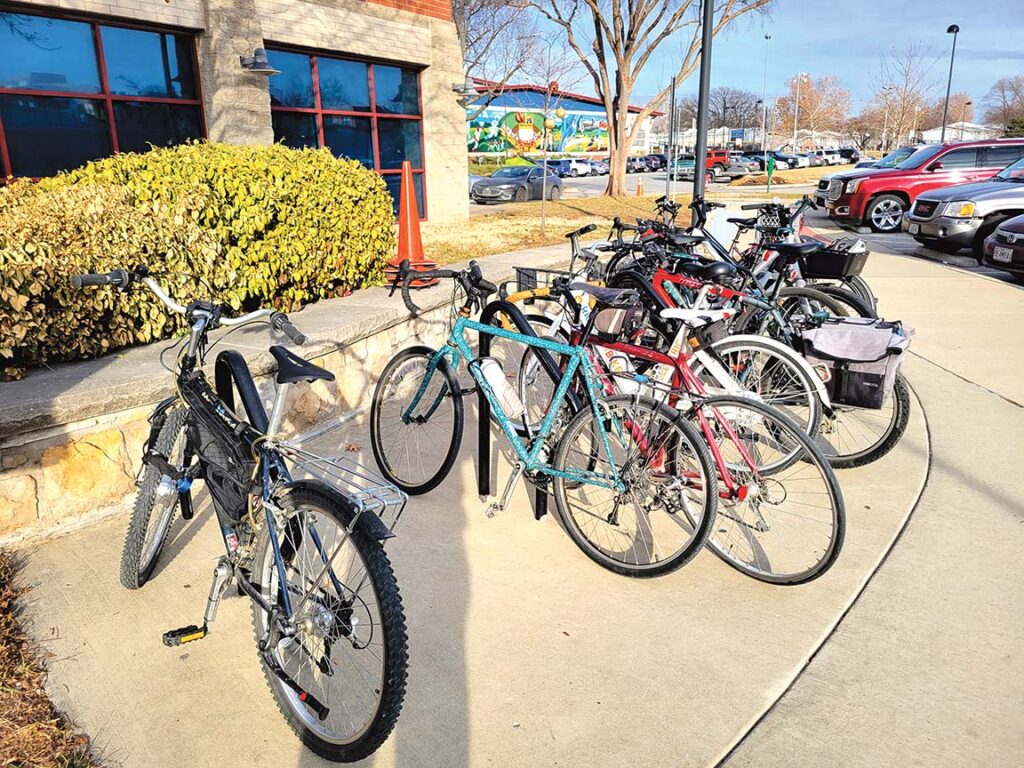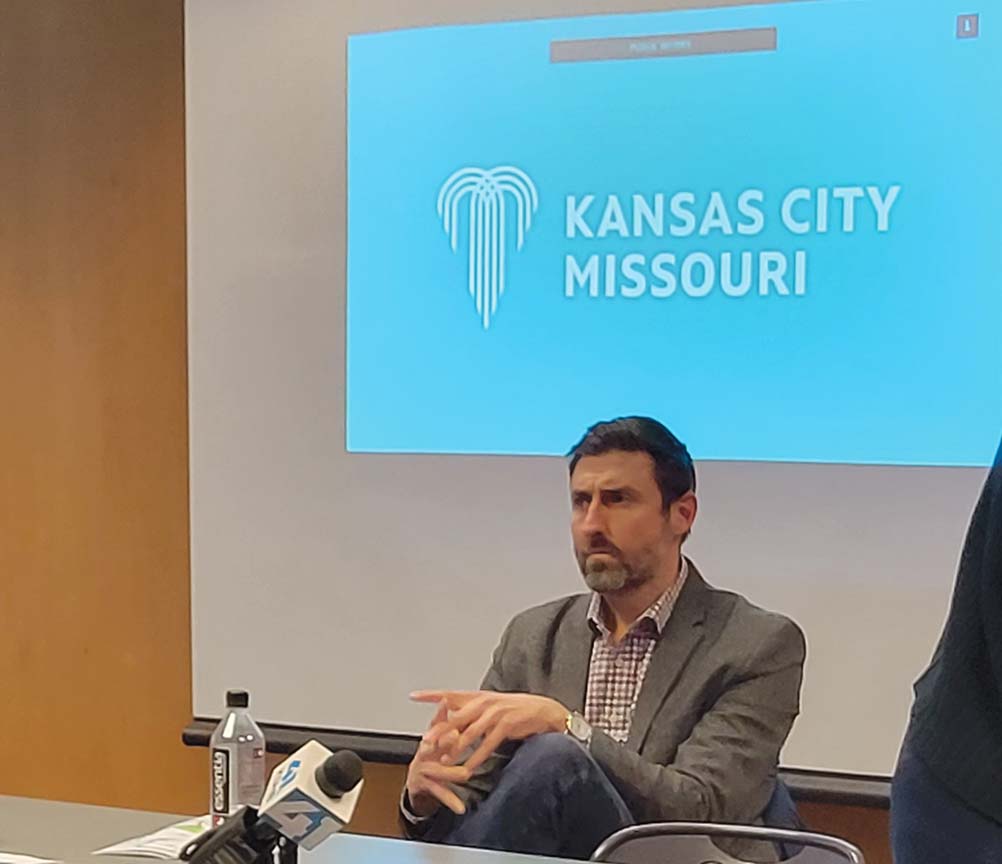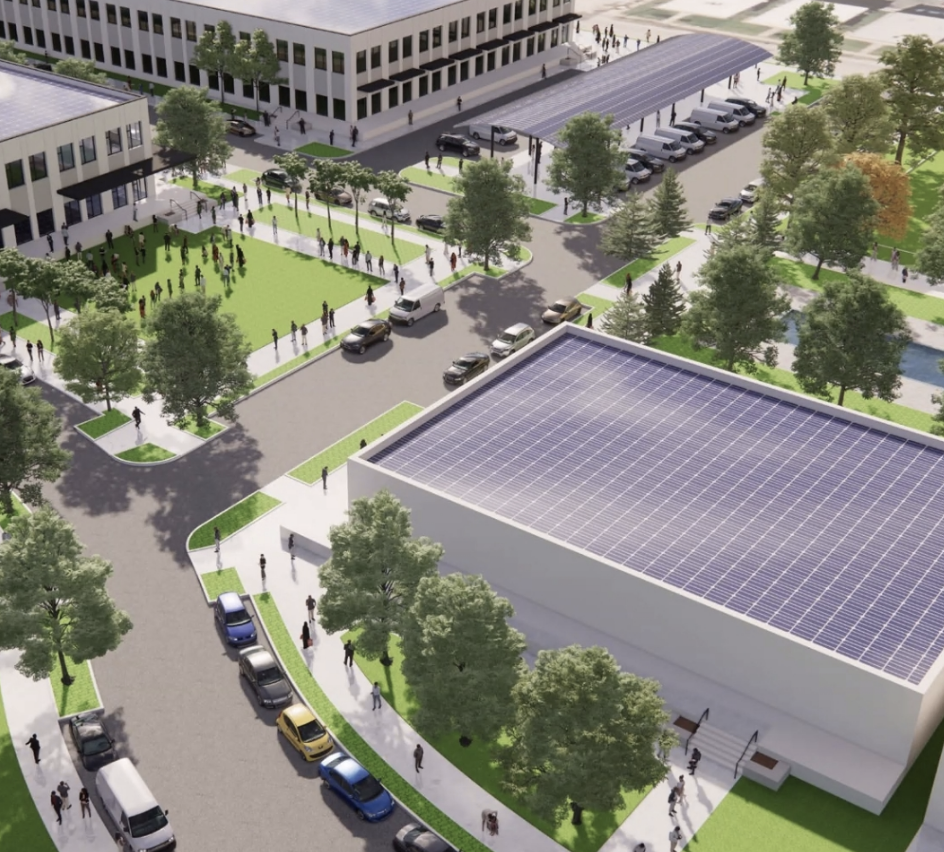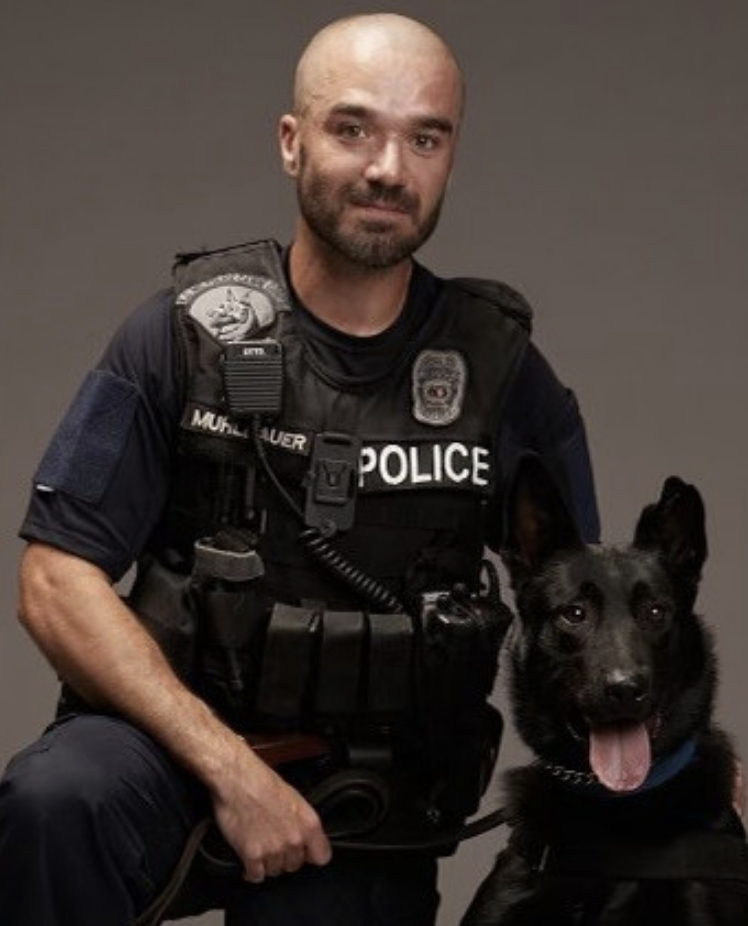
Dorri Partain
Contributor
A popular diner on Truman Road has seen a drastic reduction of customers in recent weeks. When the owner looks around her nearly empty cafe, she blames the installation of protected bike lanes across the front of her business as the cause.
Portia Kilburn has operated Portia’s Cafe at 3840 E. Truman Rd. for 37 years, serving breakfast and lunch Monday through Friday. According to her, business is down 60 percent due to lack of street parking.
“Thursday and Fridays are my busiest days, and you know yourself if you’re driving down the street, and there’s a little diner there and you don’t see any cars, you’re not gonna stop there ‘cuz you’re gonna go, ‘Oh, not good,’” Kilburn remarked. “But if you see all those cars that are usually parked there, then you know you can go eat. People are going to try that place, because look at all the cars. And now, it’s a ghost town down there.”
Kilburn and dozens of other Truman Road business owners and their employees spoke about numerous issues they say have popped up since the installation of bike lanes began last fall during a community meeting called by Third District Coucilperson Melissa Robinson and business owner Shawn Arcedino.
Arcedino, who owns Atomic Collision at 2712 E. Truman Rd., began contacting other business owners to address concerns as the installation progressed. Promoted as a listening session, they filled the meeting room at Gregg-Klice Community Center (1600 Buck O’Neil Way) on Friday, January 6. Public Works Director Michael Shaw and Jason Waldron, Director of Transportation with Public Works, were on hand to listen and answer questions raised during the meeting.
Among those attending were about a dozen cyclists to defend the installation of bike lanes, and one motorist confused by all the recent changes.
One constant remark from business owners was the lack of notification, with many stating they did not receive any letters, calls, or visits from City staff regarding the installation and only found out once the lanes had been painted and poles were being installed.
Everyone who wanted to speak was allowed to, from a cyclist that lives on 12th Street and appreciates the improvements, to a car dealer who remarked they rarely see a cyclist using Truman Road, as Robinson wrote down their comment, concern, or question.
One solution offered by a cyclist was to paint part of the traffic lane to identify it as a parking lane.
“And I think that would also maybe incentivize us to ultimately designate that entire lane for parking,” the speaker, who was not identified, said. “Another thing that I’ve heard a lot of is cars move too fast down Truman Road. I think we’ve got to lower the speed limit, get some more traffic control anyway. Understanding that Truman Road is being used as an artery to get in and out of the city. Honestly, there shouldn’t be big roads that close to downtown between these residential neighborhoods where people are driving 45 miles an hour.”
The owner of Midwest Screw Products at 2809 E. Truman Rd. relayed all the difficulties the protected bike lanes were causing for unloading flatbed trucks carrying goods needed for his business. His employees are now having to unload in the street with forklifts, blocking traffic up to 30 minutes each time, and creating unsafe conditions for his employees, the delivery driver, and drivers having to navigate blocked lanes.
A woman that drives Truman Road every day concurred with his concerns.
“Y’all didn’t even let us know – no signs, no merge, no nothing,” she said. “I’m just a motorist, but yeah I’ve been living here for a long time and I know how the road works and from west to east we had three lanes. I used to take it all the time and it takes me, to get home, probably 20 minutes at the most. Now, we all merge in like we’re on the highway, it takes me too long, like 30 to 40 minutes now to get home, and I’m on Truman Road. Why? Because all the lanes are taken up and we’re motorists. I thought that’s what we’re supposed to do, we are driving on the road. But y’all done took all the road, I don’t know where to drive.”
Tempers in the room flared from time to time, especially after a cyclist stated that everyone should wait until the installation was complete, all the signage in place, before complaining about parking and loss of business.
“Our road is not a race track for your bikes. It’s not okay,” Arcedino responded. “There’s plenty of places you can see trees and everything you want. They have trees, they have water, they have ducks but not on Truman Road. We have car shops, mechanic shops, and diners that have been in business for 37 years. So 37 years, you can see a car parked in front of Portia’s diner. Most of them are fire trucks, EMS and police cars. Guess what’s there now? Concrete blocks. Okay? It looks like a war zone down Truman Road. It looks like, ‘Do not enter, you can’t stop here.’ That ain’t fair to us.”
Joe, the owner of Twin City Motors next door to Atomic Collision, was sympathetic to the needs of cyclists, but asked if infrastructure improvements shouldn’t focus on the historic nature of the roadway.
“I’m not saying that you guys don’t have the right to cycle back and forth between the city, but there should be a different area or a different road that is safer. Something that you guys can use other than an industrial area that’s been there before you guys were kids,” Joe said. “You know what I mean? Like even before that, my building was the first Ford dealership in Kansas City. It’s been there since 1912 or something like that, and it’s designed around the last little area for us automotive guys to be. We strive our whole life to get into a good location. Now we have that and you guys are trying to kind of take it away by pulling us out, by not giving us the access to get our customers in and get them out.”
As one commenter suggested that business owners just needed to work with City staff and let them do their jobs, Arcedino asked if he was affiliated with BikeWalkKC, a group that promotes cycling and walkability on city streets. He admitted that was a member of their staff. Arcedino then asked if he was running for City Council, which the commenter first denied. Pressed by Arcedino, he then admitted that he was a candidate in the Council race. Arcedino asked if those two combined would be considered a conflict of interest.

He then turned to Eric Bunch, Fourth District Councilperson, and asked if he was a founder of BikeWalkKC and if that was a conflict of interest. Bunch, who arrived after the meeting had started, was put off guard by the question, but then said that he was a founder of the group but was no longer involved.
At that point, Robinson stepped forward to gain control of the floor.
“You know, as Council people we have to work collaboratively with City staff,” Robinson said.

“But they should have had this meeting before the bike lanes were installed. Where do we go next? There is a potential solution, and we have to get everybody’s contact information because we want you to be involved if there is an ordinance that addresses the current bike lanes, the current infrastructure that’s there. Now we want to make sure that we hear from you when that time comes.”
Public Works Director’ Michael Shaw took the floor and addressed the attendees, reminding them that there was a study done back in 2019.
“The result of that study created what you see today,” Shaw said. “There have been 19, now 20, community engagement events around these bike lanes for the last few years, this isn’t new. It may be new to some, and I can appreciate that. We did have an engagement maybe a couple of weeks ago and it was brought to my attention that there were some people on the Truman Road [Community Improvement District], businesses that were excluded from that meeting from what I was told.”
Shaw said Public Works paused construction because they wanted to hear what business owners had to say.
“Because everybody’s voice matters, and so what you’re saying Public Works is doing is regardless of the 19, now 20, engagements that we have had on this,” Shaw said. “We’re still willing to engage and listen, and that’s what we’re here to do is to listen and get your feedback and make solutions. I will say this, and you know, we have to take responsibility for some issues, and I’ll tell you as a director, the implementation could have been better as it relates to how we put it down.”
Waldron addressed the attendees, saying he wasn’t sure why so many were not notified and that he wanted to figure out why, but it was pointed out that keeping them informed moving forward was more important.
Robinson asked Bunch to make a statement as a fellow Councilperson who would be making a decision based on the meeting’s comments.
“First of all, my job as a City Councilperson is to pass votes on policy issues,” Bunch said. “In this case, this was identified as a street that has a lot of dangerous crashes, and there are lots of tools in the toolbox. What I do is – Councilman Robinson and I – we pass policy that says things like, ‘We want to reduce traffic fatalities, we want to reduce traffic injuries,’ and we hand it off to staff who are the experts. I’m not the expert on street design. What is critical here is that there are details and context that was critical, and we missed the boat on issues like loading zones for folks who are running businesses that require large shipments, I get it. That’s frustrating, and we missed the boat on that.”
As Robinson wrapped up the meeting, the walls behind her were covered with pages of comments that had been written down during the meeting. She announced to attendees that she will be introducing a resolution to the Council based on the information gathered so far that would also address an earlier City Ordinance regarding feedback regarding the installation of bike lanes. If the resolution passes, it would direct the City Manager to remove the installed bike lanes within 60 days.
For Kilburn, she has her fingers crossed, hoping for a solution.
“I live right above my little diner,” she said. “So I get down there early, I stay late, and my sisters work there and we’re just a small little, little bitty place. We depend on that to make a living, we really do. All of us. I got, let’s see, five people that depend on that little bitty place to pay rent, utilities and buy food, and with my business off 60%, it hurts us. It’s just not right.”



















